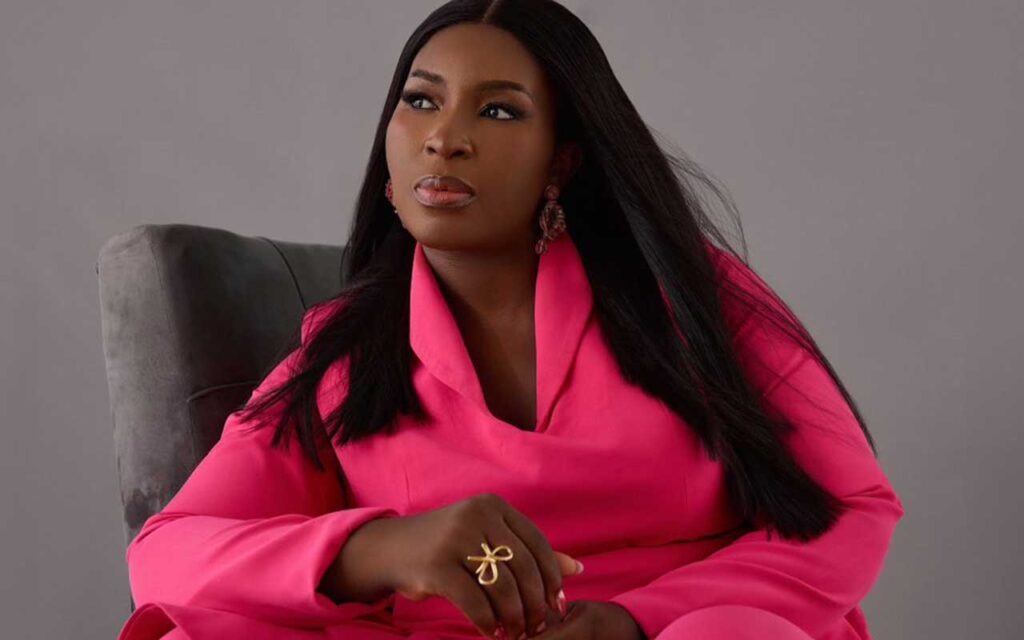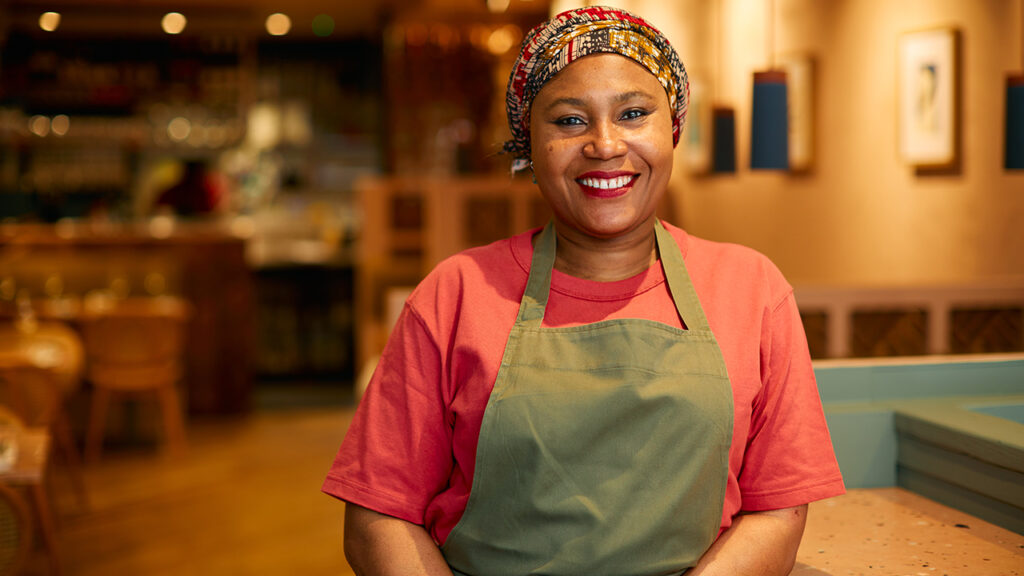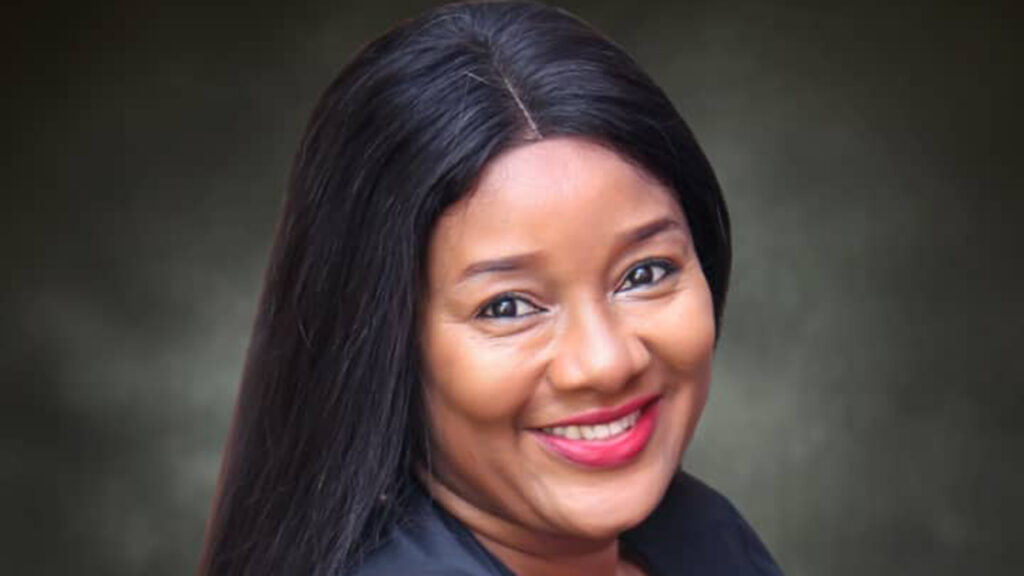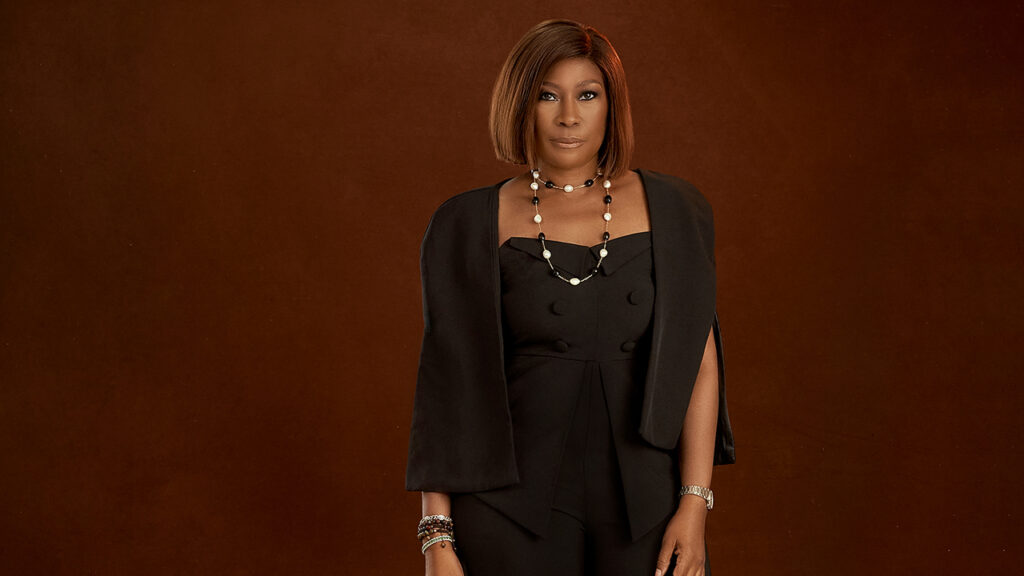
Titilola Vivour-Adeniyi has spent 15 years in Lagos State public service, serving in different capacities. She is currently the pioneer Executive Secretary of the Lagos State Domestic and Sexual Violence Agency. Her experience cuts across public policy and administration, as well as legal and social services. She has been instrumental to provision of proactive and coordinated response to Sexual and Gender-Based Violence (SGBV) in the state. The alumnus of Middlesex University, School of Politics, Policy & Governance (SPPG) and the London School of Economics, has authored several books for children on domestic violence, civic education, sexual violence and self-love/body safety. Vivour-Adeniyi also published her memoir in a book titled, Living for a higher purpose, Inspiring hope through the Nigerian Public Service. Through her Lola Vivour Adeniyi Foundation, she has exhibited commitment to empowering the vulnerable in the society with provision of scholarships and business grants. In this interview with IJEOMA THOMAS-ODIA, she speaks on her championing the cause of eradicating sexual and gender-based violence in Lagos State.
You have been instrumental to providing response to gender and sexual based violence in Lagos State. Take us through your role?
First of all, I’m very grateful to the Governor of Lagos State, Mr. Babajide Sanwo-Olu, and the Deputy Governor, Dr. Obafemi Kadiri Hamzat, for entrusting me with the responsibility of helping to actualise their administration’svision of a Lagos State that is free from all forms of sexual and gender-based violence. When we started in 2014, I was privileged to serve as the coordinator of the Lagos State Domestic and Sexual Violence Response Team. My role then included coordinating responses across the various service providers, including relevant ministries, departments and agencies, non-governmental organisations and law enforcement agencies. As executive secretary of the Lagos State Domestic and Sexual Violence Agency, my role is basically two pronged; in the unfortunate event that SGBV occurs, ensure holistic response is provided to survivors (access to free legal, medical psycho-social, alternative dispute resolution, family life engineering and empowerment services), and reduce this vicious menace to the barest minimum, as well as champion advocacy and pioneering proactive measures as a tool for prevention.
Share with us your drive and passion for empowering the vulnerable in society. How did it all start for you?
For as long as I can remember, I have been involved in one form of activism or the other, and found myself in some sort of leadership role. I also seem to have always had an eye for helping people in whatever capacity I could, no matter how little. Layering on top of that is my background as a lawyer,coupled with my conscious choice to follow the public service career path. This really set the tone for me to operate from a vantage point and find specific areas of opportunity where I could add value by helping members of the society who hitherto felt helpless.
Your expertise cuts across public policy, administration, legal services and others. How has these distinct roles shaped your personality and work?
All these roles are critical in keeping one grounded as regards stretching the full bandwidth of available laws and policies in place. They also help drive much more efficient handshakes between numerous government agencies across the chain. This comes with having to hone skills in negotiation, influence and networking. While dealing with domestic and sexual violence, the lawyer in me looks at the criminal angle. There is need to hold perpetrators accountable for their actions, ending the culture of impunity and ensuring “access to justice” and “rule of law” to move from mere cliches to reality being executed daily.
I believe very strongly in the potency of public policy and public administration. I’ve seen,first hand, the impact effective public policy can have on a people. Public policy driven by data helps shape solutions that have direct impact and help government live up to its responsibility of delivering on social contract with the people.As somebody who is always concerned about the welfare of other people, I am also very much aware of the social angle to issues, the need to unearth social issues, to understand the why, demanding for justice and striking the right balance to understand what fuels crime, what makes people vulnerable and susceptible to SGBV. All of these drive me into a continuous state of curiosity and openness to learn from trends and also best practices across the globe.
What do you consider a major way of eradicating GBV in Lagos and what can other states emulate from Lagos?
We actually have a lot of positives working for us in Lagos State. We have non-governmental organisations in the communities doing amazing work, providing critical services to survivors. The partnership that exists between these NGOs and state government is critical in ensuring a multi-disciplinary approach is adopted and deployed. A distinctive factor is the political will demonstrated to rid the state of this menace. We have been blessed to have a track record of support from the highest office in the state for the last decade or so. The consistency in political will cannot be over-emphasised.
Former Governor Babatunde Raji Fashola signed the first executive order which empowered the then Response Team to implement some ground breaking ideas. Former Governor Akinwunmi Ambode helped ensure the Response Team got adequate support to find our footing and grow our reach via expanded advocacy. Sanwo-Olu has institutionalised and turbo-charged the efforts by approving a full-fledged agency (first of it’s kind in Nigeria) with statutory powers and robust operating structures in place. If walking the talk on fighting SGBV, then that is Lagos State. From an inter-ministerial team, with four ad hoc staff, to operating 24/7, with a defined statutory budget dedicated to preventing and responding to SGBV, a lot of progress has been attained which we do not take for granted. We do not, however, claim to be perfect; we embrace the continuous improvement approach, and continue to work on feedback from stakeholders around areas of improvement.
What informed your memoir?
I remember speaking to my dad a couple of years ago, just sharing generally about the various challenges I was facing on the job, and how I was attempting to overcome them. I remember him asking me if I was documenting my experience somewhere, especially as a lot seemed to be happening at a very fast pace. After one innovation or major challenge, I would move on to the next. He pointed out that I might be missing an opportunity to pause, reflect and assess impact being made. He encouraged me to document my journey, the various innovations introduced, challenges overcome, such as running an office with no budget. He said the document could hopefully serve as a guide for state and non-state actors who were desirous of setting up similar initiatives.
I find that a lot of people in our part of the world, especially women, are doing amazing work and transforming their respective sectors, but often, they don’t document how they did what they did. We are not privileged to know the process they went through and their experiences. And so I feel it’s important that we tell our stories, not just for posterity, but also for people to learn from our experiences.
What do you find fascinating about being an author in the social impact space?
To be sincere, I still find it quite weird addressing myself as an author. I reckon perhaps it is because my book focuses on my story, which is, therefore, something personal and close to home. However, what is most fascinating for me is the feedback I have gotten from numerous people about how my story has given them a renewed sense of motivation for their own personal journeys. That my story inspires others gives me a deep sense of fulfilment.
How do you get inspiration and stay motivated?
Being able to play a role in restoring hope in people’s lives and helping them find some sort of closure while focusing on a brighter future, keeps me motivated to stay the course and continue to do more. I have grown to realise and accept that the work we do is literally life-saving, and you can never be 100 per cent done with advocacy. It is also motivating to see that there are other people across the country that buy into the same vision of restoring hope. Many people started this journey decades ago and hopefully many will come after us and do a lot more than we have achieved. Therefore, I am motivated to seize the moment, make the best of it and play my own little part in the larger journey we are taking as a nation towards progress and development.
I must add that working in this space of development, work or social servicesactually expose us to vicarious trauma. And so, another way I endeavour to remain inspired and motivated without being emotionally drained or complacent is to never take a case for granted. I see each case as a privilege to serve our survivors and make available the full bouquet of government services through which they can seek the help they need, after all this is why government exists. Without sounding overly spiritual, I have come to a knowing that public service is actually my calling. I truly believe I was born to serve. So whether it’s in public policy or impacting lives through my foundation, I really believe this is my raison d’etre. To give back, touch lives and make impact. Of course I also stay rooted and connected to my maker who ensures I’m refreshed.
GBV affects women more as they are the most vulnerable. What is your advice to women who struggle with their reality?
The truth of the matter is that a lot of women have had their destines cut short as a result of gender-based violence. It is important to note that this incident does not define who you are as a person. You can truly rise up, take control of your life and forge a bright future. That is why it is of utmost importance that cases of GBV are reported to organisations such as the agency. It has trained personnel such as lawyers, GBV case officers, medical personnel, psychologists, family life engineers, and alternative dispute resolution officers to assist you on your road to healing. I use this medium to inform any victim or survivor to realize that they are not alone. Help is available and we are literally a phone call away (08000 333 333).
As a successful woman, what advice do you have for women who look up to you?
I think as women, we must never allow stereotypes define or limit us. We should realise that we can do anything we put our mind to. It is also not enough to have a dream, or be passionate about a cause, we should be willing to put in the work, make sacrifices, delay gratification and remain focused on the end goal. Focus on what is within your control, put in your best, be humble and deliberate when building relationships. More importantly, find the true core of your being and existence and remain connected to it. This is because it is what will keep you in check when the trials come. I thankfully found my purpose early in my career, and with God’s help, that focus on the end goal sustained me through the tough times and hopefully will continue to do so.
What is your life’s mantra?
I am a merchant of hope. This is the mantra on which I live. Whether in helping people find hope in themselves despite a setback, or instilling hope in the Nigerian public service or the country as a whole, or inspiring people to believe and trust in God, I believe that my role is to be a conduit for the propagation of hope across the world.












